#Persona non Grata
Text
Their faces says it all!
132 notes
·
View notes
Text
Editing is fun!!
Ft. My boy, “Anon” (Arcade/Mask Clown)
Smug bastards. Wipe the damn smirk off ur face… (this is what the Unlikely Clown deals with on the daily)


Doorman days!! Someone come save bro he has been fending off doppelgängers from this bum ass building for 5 years

A semi-requested Nightmare Form for him (not affiliated with the Hooded Man at all), named “Persona Non Grata”

Doppelllssss by yours truly! (The D.D.D.)



#thats not my neighbor#tnmn#thats not my neighbor nightmare mode#tnmn nightmare mode#that’s not my neighbor#nightmare mode#tnmn clown#mask clown#arcade clown#anon#tnmn anon#tnmn clown mask#persona non grata#tnmn oc#oc#tnmn edit#asset edit#sprite edit#edit
38 notes
·
View notes
Text
youtube
Castiel // Persona Non Grata (Bright Eyes)
#castiel#spn#supernatural#amv#spnedit#edit#video#s9#destiel#destiel haters watch it too tho you love me#bright eyes#persona non grata#imagining if i had made this 2 years ago when i wanted to. shhh#april kelly#dean winchester#i'm no angel#i think i'm gonna like it here#holy terror#stairway to heaven#cas#dean#incoherents#oh also this is an amv for human cas and it encompasses that entire arc so if you know that arc is triggering be wary etc#Youtube
171 notes
·
View notes
Text
Just got kicked out of a club for being trans lmao hows y'all's nights going please tell me something fun because I cannot stop crying haha
67 notes
·
View notes
Text
9 notes
·
View notes
Text
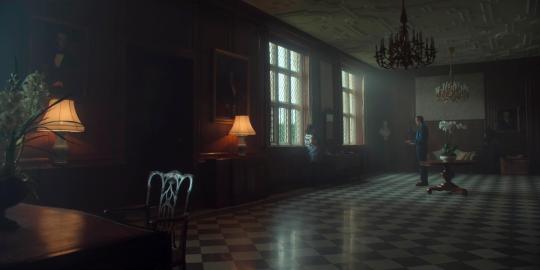
The Crown
Season 6, “Persona Non Grata”
Director: Alex Gabassi
DoP: Sophia Olsson
#The Crown#Persona Non Grata#Season Premiere#The Crown S06E01#Season 6#Alex Gabassi#Sophia Olsson#Bertie Carvel#Lydia Leonard#Cherie Blair#Peter Morgan#Netflix#Left Bank Pictures#Sony Pictures Television#TV Moments#TV Series#TV Show#television#TV#TV Frames#16 November#2023
9 notes
·
View notes
Text

5 notes
·
View notes
Text
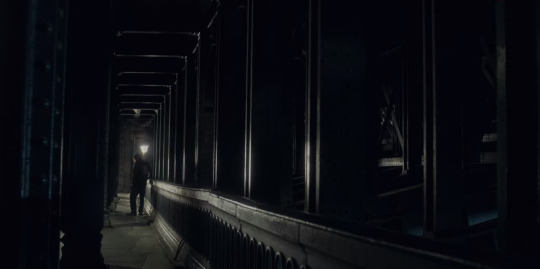
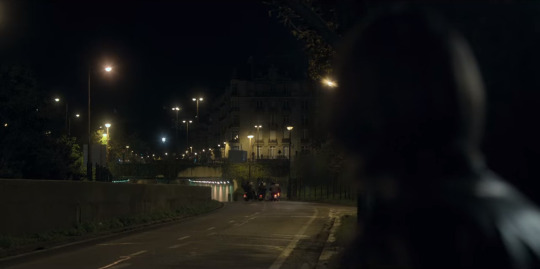
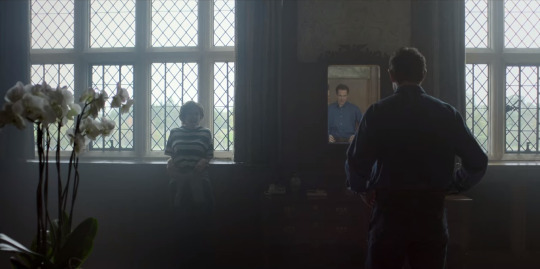

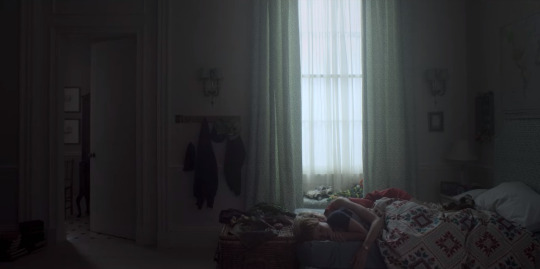
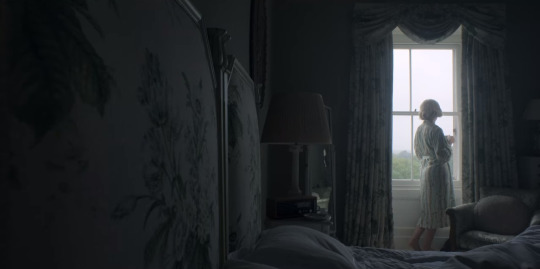


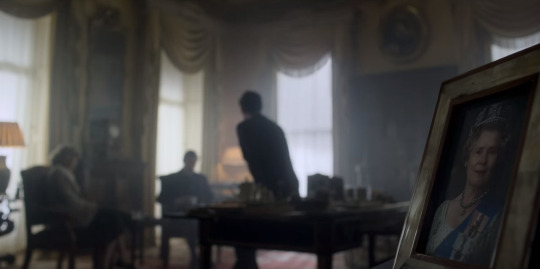
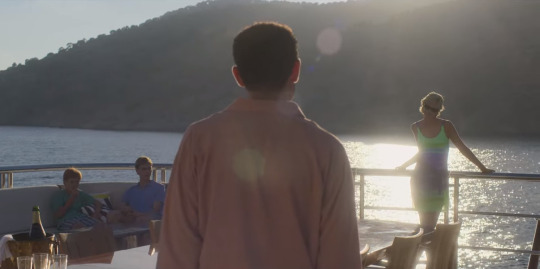
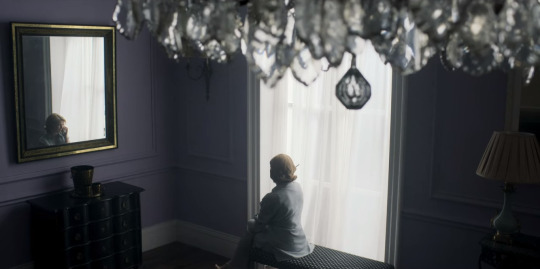


**Shots of the Episode**
The Crown (2016)
Season 6, Episode 1: “Persona Non Grata” (2022)
Director: Alex Gabassi
Cinematographer: Sophia Olsson
#shots of the episode#netflix#the crown#the crown netflix#2023#the crown season 6#persona non grata#peter morgan#alex gabassi#sophia olsson#elizabeth debicki#dominic west#imelda staunton#bertie carvel#olivia williams#khalid abdalla#british monarchy#princess diana#cinematography#2023 tv#stills#tv stills#2.00:1#screencaps#screenshots#streaming
9 notes
·
View notes
Text
“Moral grandiosity seems to have infected the nomenklatura class of giant corporations. It is not enough for them to ensure that the corporations make a decent profit within the framework of the law; they must claim to also be morally improving, if not actually saving, the world.
So it was with Alison Rose, the first female chief executive of the National Westminster Bank, a large British bank 39 percent owned by the British government. When first appointed to the position, she said that she would put combatting climate change at the centre of the bank’s policies and activities. Whether shareholders were delighted to hear this is unknown.
But the bank, under her direction, went further. Its subsidiary, Coutts, founded in 1692 and long banker to the rich, compiled a Stasi-like dossier on one of its customers, Nigel Farage, before “exiting” him from the bank, to use the elegant term employed by Ms. Rose. (Defenestration will come later, perhaps.)
Farage is, of course, a prominent right-wing political figure in Britain, as much detested as he is admired. There was no allegation in the dossier that he had done anything illegal; indeed, in person, he had always acted correctly and courteously toward staff. What was alleged was that his “values” did not accord with those of the bank, which were self-proclaimed as “inclusive” (though not of people with less than $3.5 million to deposit or borrow). Farage was depicted as a xenophobe and racist, mainly because he was in favour of Brexit and against unlimited immigration. That anyone could support Brexit for any reason other than xenophobia, or oppose unlimited immigration other than because he was a racist, was inconceivable to the diverse, inclusive thinkers of Coutts Bank.
Ms. Rose saw fit to leak details to the BBC about Farage’s banking affairs, claiming to believe that they were public knowledge already. She did not mention the 40-page dossier that her staff had put together, about Farage’s publicly-stated views. The Stasi would have been proud of the bank’s work, which comprehensively proved him to have anti-woke views.
Whatever else might be said about Mr. Farage, no one would describe him as a pushover, the kind of person who would take mistreatment lying down. Even the Guardian newspaper, which cannot be suspected of partiality for him, suggested that the bank and its chief executive had questions to answer.
It was not long before Ms. Rose had to beat a retreat. She issued a statement in which she said:
I have apologised to Mr. Farage for the deeply inappropriate language contained in [the dossier].
The board of the bank said that “after careful reflection [it] has concluded that it retains full confidence in Ms. Rose as CEO of the bank.”
The following day, Rose resigned, admitting to “a serious error of judgment.”
𝐓𝐡𝐞 𝐯𝐚𝐥𝐮𝐞 𝐨𝐟 𝐭𝐡𝐞 𝐛𝐚𝐧𝐤 𝐟𝐞𝐥𝐥 𝐛𝐲 𝐦𝐨𝐫𝐞 𝐭𝐡𝐚𝐧 $𝟏 𝐛𝐢𝐥𝐥𝐢𝐨𝐧.
The weasel words of Ms. Rose and the bank board are worth examination. They deflected, and I suspect were intended to deflect, the main criticism directed at Ms. Rose and the bank: namely, that the bank had been involved in a scandalous and sinister surveillance of Mr. Farage’s political views and attempted to use them as a reason to deny him banking services, all in the name of their own political views, which they assumed to be beyond criticism or even discussion. The humble role of keeping his money, lending him money, or perhaps giving him financial advice, was not enough for them: they saw themselves as the guardians of correct political policy.
It was not that the words used to describe Mr. Farage were “inappropriate,” or even that they were libelous. It is that the bank saw fit to investigate and describe him at all, at least in the absence of any suspicion of fraud, money laundering, and so forth. “The error of judgment” to which Ms. Rose referred was not that she spoke to the BBC about his banking affairs (it is not easy to believe that she did so without malice, incidentally), but that she compiled a dossier on Farage in the first place—and then “error of judgment” is hardly a sufficient term on what was a blatant and even wicked attempt at instituting a form of totalitarianism.
This raises the question of whether one can be wicked without intending to be so, for it is quite clear that Ms. Rose had no real understanding, even after her resignation, of the sheer dangerousness and depravity of what the bank, under her direction, had done.
As for the board’s somewhat convoluted declaration that “after careful consideration, it concluded that it retains full confidence,” etc., it suggests that it was involved in an exercise of psychoanalytical self-examination rather than of an objective state of affairs: absurd, in the light of Ms. Rose’s resignation within twenty-four hours. The board, no more than Ms. Rose herself, understood what the essence of the problem was. For them, if there had been no publicity, there would have been no problem: so when Mr. Farage called for the dismissal of the board en masse, I sympathised with his view.
There is, of course, the question of the competence of the bank’s management. Last year, the bank’s profits rose by 50 percent (I wish my income had risen by as much). I am not competent to comment on the solidity of this achievement: excellent profits one year followed by complete collapse the next seem not to be unknown in the banking world. But the rising profits under Ms. Rose for the four years of her direction seem to point to, at least on some level, of competence. How many equally competent persons there are who could replace her, I do not know.
Still, 𝐭𝐡𝐞 𝐭𝐞𝐧𝐝𝐞𝐧𝐜𝐲 𝐭𝐨 𝐦𝐨𝐫𝐚𝐥 𝐠𝐫𝐚𝐧𝐝𝐢𝐨𝐬𝐢𝐭𝐲 𝐜𝐨𝐦𝐛𝐢𝐧𝐞𝐝 𝐰𝐢𝐭𝐡 𝐚 𝐥𝐚𝐜𝐤 𝐨𝐟 𝐞𝐥𝐞𝐦𝐞𝐧𝐭𝐚𝐫𝐲 𝐬𝐜𝐫𝐮𝐩𝐥𝐞𝐬, as illustrated in this episode, is worrying. Would one trust such people if the political wind changed direction? Their views would change, but the iron moral certainty and self-belief would remain the same, like the grin of the Cheshire Cat. How many meetings have I sat through in which some apparatchik has claimed to be passionately committed to a policy, only to be just as passionately committed to the precise opposite when his own masters demand a change of direction?! The Coutts story is one of how totalitarianism can flourish.”
—
Theodore Dalrymple
#the new totalitarianism#political righteousness#totalitarianism#secular religion#moral exhibitionism#apparatchiks#professional managerial class mind virus#ideological fundamentalists#insane in the membrane#Theodore Dalrymple#western decline#Neil Farage#persona non grata#the new inquisitions#barbaric#national Westminster bank#the self anointed
13 notes
·
View notes
Text
Spotlight On: Persona Non Grata (2003)
"I think right now the problem is rather emotional, rather than territorial. Rather psychological than logical. Two angry people that cannot hear each other any more. The Middle East is full of tongues and short of ears."
-Shimon Peres, Prime Minister of Israel, Persona Non Grata (2003)
In 2003, Oliver Stone directed an HBO documentary on the Israeli-Palestinian conflict during the Second Intifada. The film follows Stone's interviews with Israeli prime ministers past and present Benjamin Netanyahu, Shimon Peres and Ehud Barak. Also interviewed are Hasan Yosef of Hamas, the (masked and anonymous) leader of the al-Aqsa Martyrs' Brigade and random citizens of both sides. There's also a Michael Moore-esque subplot about the quest to secure an interview with Palestinian president Yasser Arafat, which results in only a brief superficial meeting.
Stone's film crew arrived in Jerusalem on March 23, 2003 but spent a significant chunk of time filming in Ramallah, West Bank until Israel launched surprise attacks against the city. We watch onscreen as the shocked crew views live news coverage and a political liaison reports to Stone that Israel does not care about the safety of the crew or famous American director and will not grant safe passage. Cameras document the production unit finally fleeing through the Qalandia checkpoint, thanks to a last-minute intervention and escort from the Canadian embassy. (The U.S. "didn't do shit" for them, Stone summed up later.)
Typical of the severe cinéma vérité style of Stone's early documentaries, Persona Non Grata plunges viewers into the conflict immediately with little history or context. At this time, Stone did not make his nonfiction for beginners. There is little text onscreen, mainly just identifying the interviewees by name. Subjects are allowed to speak at length without interruption and the conversations are rarely edited into soundbites. The constellation of crew and cameras which surround Stone and his subjects are always visible. The film doesn't take obvious sides, though at points it's clear that Stone - a former soldier of the American empire who fought against a guerrilla insurgency in Vietnam - is more comfortable with the guerrilla Palestinian fighters than the pious Israeli politicians in suits. (Grunts recognize grunts.)
Oliver Stone's own Jewishness is never mentioned in the documentary, though it's interesting and somewhat fraught. According to his memoir Chasing the Light, Oliver's paternal family was full of learned rabbis (originally from Poland) who disliked leaving their enclave in New York's Upper West Side. Oliver's grandfather, Joshua Silverstein, was the wealthy owner of New York's Star Skirt Company until he sold it and invested the proceeds in the stock market shortly before the October 1929 crash. The family fortune was destroyed. Still reeling from that disaster, Oliver's father, Abraham Silverstein, was then so deeply scarred by the rampant antisemitism of the 1930's that he changed his name to the more "American" Louis Stone. According to Oliver, his father was repulsed whenever he encountered the Orthodox Jewish community in New York, believing they made themselves open targets, and he frequently told his son to hide his Jewishness identity because "the pogroms will come back" and "they" were waiting to take little Jewish children like him.
In that environment, young Oliver was never given an education in Judaism and, in the early 1990s, he became the devout Buddhist he remains today. That was also the decade when Stone met and became business partners with Arnon Milchan, the former Israeli spy turned film producer. Milchan brought Stone on his first trip to Israel and Stone would visit the country a few more times, most recently last summer to receive a lifetime achievement award from the Jerusalem Film Festival. Milchan's ardent Zionism did not rub off on Stone, who's gotten in hot water over the years for openly criticizing Israel's foreign policy, specifically AIPAC and Israel's 2024 attacks against Gaza civilians.
So what is Persona Non Grata? I think it's a weary reflection of its director's ongoing struggle with conflict and violence. As a two time Purple Heart recipient and Army combat veteran, Oliver Stone has devoted most of his career to grappling with himself as both a victim and perpetrator of violence. Nearly being killed - and becoming a killer - in the service of what he later discovered was a racist, colonial war in Vietnam remains his primal wound. (It's also likely why he's shown in the doc as nonplussed about being in a war zone surrounded by tanks and snipers.)
The film's title (Latin for "unwelcome person") is a deliberate choice. Is it referencing Stone himself and his attempts to interview Arafat, or to Arafat, or to the Palestinians, or to the Israeli leadership? Maybe all of the above. Of course there's no real ending to the documentary, because how could there be? Instead, old soldier Stone wanted to observe this never-ending conflict. So he came, he saw, and left without answers - just heartsick resignation.
Watch Persona Non Grata (2003) here.
5 notes
·
View notes
Note
there’s some kind of parallel to be drawn between george and daniel and their like hyper performed pr personalities? both very obviously playing the character they think they need to play to be liked? is that why they’re friends now?? some like mutual understanding of how exhausting it is to be faking it so hard so much of the time???? you can then draw some kind of interesting conclusion about galex/maxiel with alex and max both refusing to do that - max honest and himself in media always, even when it’s detrimental to him and alex extremely open about how much he despises media duties??? idk i just come to your ask box to work out my own thoughts sometimes
omg I've never thought of that 😲 that's so interesting and my anons are truly cleverer than me
Daniel is so performative but he's SO liked and naturally charismatic that it feels authentic, where George's is so curated and anyone with a discerning eye can tell how Hard he's trying. their friendship during localised in soho houses (exclusive members only rich people social club) is soooooo indicative that when they're hanging out, with each other, and can see thru the other's act the friendship is predicated on maintaining it. wearing DR's merch as public support~ then DR going to Merc hospitality to hand deliver
and then the parallel of their closest blorbos refusing to put on the act that they wear like armour. max is very open that he won't play the game, and when you're world champion you sort of don't need to.
alex has all this charm~ where him not wanting to do media duties has Become media duty making him come across as more #relatable and personable. compare it with GR co-opting the "George Russell is the type of guy..." memes and it feeling so corporate and inorganic.......
I'm also working out my thoughts in your replies but thank you for giving me something to chew on
43 notes
·
View notes
Text
My posts on X and IG..about her causing international scandal. It was a given that she would do this..all we needed was to make some popcorn. Remember last time in S. AFRICA, BRF just like Australia had to pay big time, also range rovers were sent in a plane to make amends.

#x receipts. Roachel Ragland Dumbarton#meghan markle#meghan markle lies#dumbarton#narcissistic personality disorder#nutmeg#narcissism#rachel ragland#Roachel Ragland Dumbarton#shes an idiot#causing international scandal everywhere she goes#persona non grata
18 notes
·
View notes
Text
@wolfstarmicrofic
Noun: Persona non grata - an unacceptable or unwelcome person
That’s what he was. Persona non grata with his family. His behaviour (rebelling, questioning, defying, refusing to bow down, resistance and refusal) had been described as unforgivable by his mother. Blasted off the family tree as a result.
Sirius ruefully thought to himself that Unforgivable more aptly described the curse he had been subjected to just before he ran away from home and sought refuge with the Potters.
As much as he firmly, fully believed he would never go back to his family (would never be accepted back into the fold by them and would never voluntarily want to, he refused to care what they thought, he point blank refused to care, even Regulus, he refused, he refused…) he also knew that James Potter would always consider him family.
That not matter what fuck up, James Potter would always forgive him, accept him, consider him family, persona grata.
#wolfstar microfic#persona non grata#Sirius Black#James Potter#happy birthday james potter!#JP appreciation post
11 notes
·
View notes
Audio
#persona non grata#postmodern dystopia#suzi sabotage#darkwave#dark wave#synthpop#goth#goth music#goth subculture
12 notes
·
View notes
Text
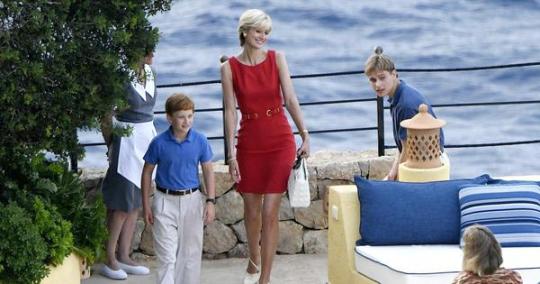
The Crown (2016-) Persona Non Grata
S6E1
Diana holidays in Saint-Tropez with Al-Fayed and bonds with his son Dodi. Charles is crushed when the Queen won't attend Camilla's 50th birthday party.
*Dodi and William discuss the upcoming James Bond movie which would have been Tomorrow Never Dies (1997). Jonathan Pryce, who plays Prince Phillip, also played the main villain Elliott Carver.
#The Crown#Persona Non Grata#S6E1#season premiere#Princess Diana#Saint Tropez#summer 1997#Camilla's 50th birthday party#relationships#Dodi Fayed#Elizabeth Debicki#tv series#biography#drama#history#royals#British Royal family#just watched
2 notes
·
View notes
Text

The Crown
Season 6, “Persona Non Grata”
Director: Alex Gabassi
DoP: Sophia Olsson
#The Crown#Persona Non Grata#Season Premiere#The Crown S06E01#Season 6#Alex Gabassi#Sophia Olsson#Salim Daw#Mohamed Al-Fayed#Khalid Abdalla#Dodi Fayed#Peter Morgan#Netflix#Left Bank Pictures#Sony Pictures Television#TV Moments#TV Series#TV Show#television#TV#TV Frames#cinematography#16 November#2023
4 notes
·
View notes